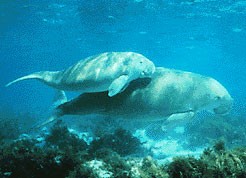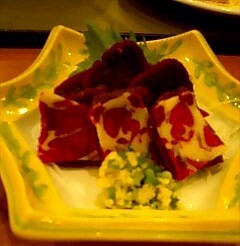07 March 2008
Dear Sea Shepherds and animal loving Americans!
Sea Shepherds came back again and attacked Japanese whaling fleets in Antartic Sea. This time Japanese marine patrol personnel shot at them.
I sent Sea Shepherds the following message by email. This is not only for marine hypocrit group but for animal loving Americans.
Did you know grazing cattles is deforesting Amazon forest?
Stop eating hambergers! Eat fish and whales and dophins. They don' t need glazed fields.
Be more smart and scientific rather than being hypocratic!
P.S. If you are really animal rights activisits, stop Rodeo shows, it is hurting cute cows. Don' t say it is your culture! Some culture is not worth going on.
Dear Paikea,
Taking half an hour or 1 minute to kill doesn't make any difference. After all, we are all barbaric in order to survive. Even if you are vegetarian, even plants are living creatures and have emotions, and we are taking lives away from them. But they just stay still. What is arrogant is determine which creature is worth living based on cuteness, or how familiar they are to you.
I don't care how we kill and eat animals because they are just resources to us. All we have to do is keep them sustainable. I don't criticize rodeo in Texas, chicken fighting in Southeast Asia or bullfighting in Spain. It is their cultures and their animals.
Well, Asians should taste better than Caucasions because we are more like herbivorous mammals.
22:40 Posted in Australia, Ecology, Japan News, Politics | Permalink | Comments (3) | Tags: whaling, Okinawa
17 February 2008
Mockdocumentary: "Death of a President"
President Bush was assacinated in Chicago. Who killed him?
Of course, this is the fiction. Janre of mockdocumentary, but it looked very real.
After the assacination, the U.S. government used this fear to justify amendment of Patriot Act, tightening the freedom of citizens. Muslim man was arrested but there was not enough supporting evidence to convict him but he was convicted by the jurors.
Why? This is the same old fashioned rhetoric. Once awful thing happened, no one can have objective view.
It was well-made documentary although it was a fiction.
But I wasn't very impressed. I am kind of tired of such anti-Bush propaganda films such as Micheal Moore's "Fahrenheit 911."
Yes, Bush was wrong. He did the wrong things. So did other politicians in the world. It is just easy to criticize the politicians but what are behind the actions they make? Think about it.
Even Gore was elected as President of the U.S., he might have dispatched troops to Iraq. Accusing just one politician for all the wrong things in the world doesn't actually change the world better.
22:45 Posted in Film, Politics | Permalink | Comments (0) | Tags: Bush, War, Terror, Documentary
13 February 2008
Dear Australians: Apology to the Aboriginal people
The Austraian government made an official apology to the Aboriginal people. The Prime Minister said "sorry" to the Stolen generation who were taken away from their families to concentration camps to be assimilated to white values.
I've seen the movie "Rabbit Proof Fence." Three Aboriginal girls forced to live in the camp apart from their parents escaped from the camp to go back their home by tracking down the rabbit proof fence. That was based on a true story. What a terrible thing whites did to them. This Aborigines' sad history was mentioned in the You Tube Video about whaling issue. Some scenes of the video showed Aborinial people and subtitles "Australians treated Aborigines inhumanely." The video was viewed by the Australia's foreign minister. It is now removed. But it was very interesting. The theme was Australians' anti-whaling is racist sentiment against Japanese.
Now we feel like Aborigines who were taken away their identity and culture. What is wrong with hunting whales and eating the meat? You are not only protesting whaling because of the extinction issue. You think whales are special animal that even there were plenty of it in the ocean, anyone should not hunt even one of them.
Your government showed the photos of captured whales being transported to the fleet from the ocean by the anchor. Cruel? Haven't you ever seen the photos of the meat factories? See this video.
Are you extracting meat from cows, pigs and kangaroos without killing them? Are you living in the Disney fantazy? Learn the history of your people, there were Australian whaler ships in the past.
I shall stop eating Australian beef because cows are cute and intelligent. That is how you think.
I do not think your country is civilized nation. You might poison the beef like what Chinese did to us.
It is just fair to decide not to eat the meat imported from the people who criticize what we eat.
The photo of whalemeat sashimi served in a restaurant in Tokyo.
06 February 2008
My opinion for the result of Super Tuesday
McCain for Republican, Hillary and Obama still dead heat for Democrats.
I think this is going to be very interesting election.
I don't think Republican candidate would win because of the war in Iraq. In fact, Mr. McCain is too old, I think. He is over 70. Can he do 2 terms?
So the point is who is going to be Democrats candidate?
The first woman president or first Black president?
I am afraid to say Hillary is not fitted to a new president. Not because she is a woman because she seemed to be too much influenced by her husband, the former president of the U.S.
Yes, she is smart and independent and worked as a senator. But because she was a first lady, she does not seem to be a self-made politician. She also seem to be hysteria and too strict. Cannot find the open-minded motherhood.
Obama is a great candidate. I don't know if he is really qualified for the presidential candidate.
But if he is elected, this is going to be a great revolution for the U.S. It can change the image of the U.S. No one calls your country "white-dominated racist society" which I did. It can drastically improve deteriorated image of the U.S. caused by the war in Iraq.
As far as I've seen the recent Hollywood films, Americans wish to have a Black candidate like the one in "Deep Impact" and FOX's real-time drama series "24."
But I just don't care, it is up to you to decide.
My country is not presidential system. The parliament members choose the leader of the nation. The head of the ruling party becomes the prime minister. I think it is good system. It is like Nancy Pelosi becomes the president of the U.S. You don't have to spend too much time, money and energey to choose the leader. In fact even if you choose a quality leader, unless the parliament members get along with him or her, politics don't work out.
21:15 Posted in Politics | Permalink | Comments (0) | Tags: election, Afro-American







